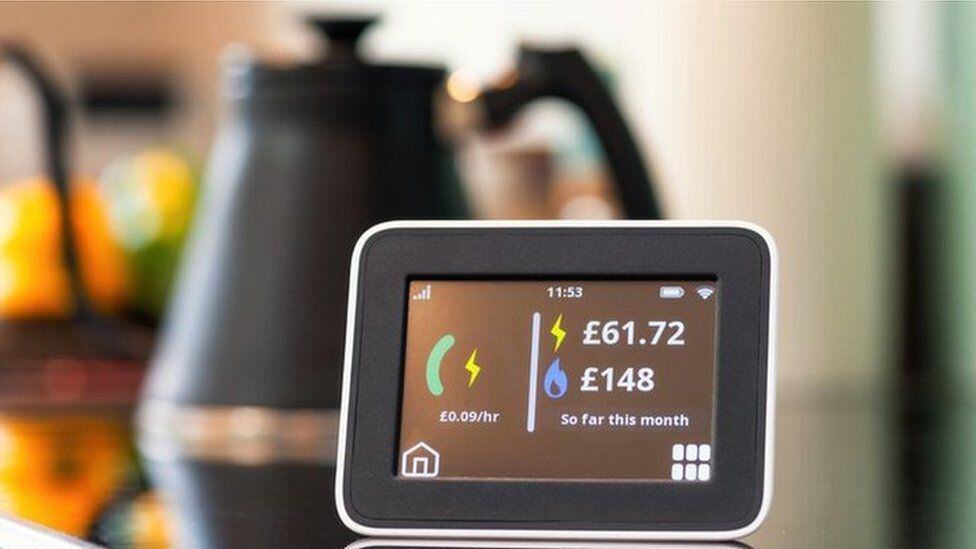Yvette Clements is considering placing her disabled daughter in state custody.
The 58-year-old woman, who lives in Norwich, England, says she has encountered that situation due to rising energy bills in the UK.
LOOK: They seek to change a British law to remove a historical role from Prince Harry
Her daughter, Rosey, cannot regulate her body temperature and the heating in her house has to be on most of the time.
As a result, your bills they have gone up to $350 a month.
“If this continues, I will have to think about placing her in government care, which is heartbreaking,” he says.
“We’re very close, but I need to make sure she gets what she needs.”
Rosey, 23, who has cerebral palsy and epilepsy, needs an electric bed, electric bath, electric hoist, feeding machine and CCTV to monitor her overnight because of her seizures.
The only time her mother can turn off the heating is when Rosey is away from home at Sense College, a specialist school for young people with complex disabilities.
“I don’t mind sitting in the cold when she’s not here, but I don’t have that option most of the time, because Rosey could have a seizure if she’s cold,” she says.
“I don’t run my oven anymore and I’m cutting costs in every possible way, but I still can’t pay my energy bills.”
“I’m also terrified of possible power outages. I just It’s not an option that Rosey’s team is off.”
Subsidy
Clements receives a government allowance, which includes funding for carers and housing costs, while Rosey receives a personal allowance.
Rosey is one of six million disabled people who recently received a US$170 government subsidy due to rising costs of living.
But Clements claims that that sum It doesn’t even cover a month’s worth of electricity. His bill recently increased from $140 to $340 per month.
When this happened, he canceled his automatic payment and now sends monthly meter readings.
Rosey may not have long to live, her mother said, and the situation prevents them from making memories together.
“This could be Rosey’s last Christmas, we don’t know how long he will live but I can’t afford to take her anywhere or buy her gifts.”
“Even though she’s registered as blind, she can see lights and that’s what she likes best. We have a sensory room, but I have to limit her time in there because it’s too expensive.”
“She loves Christmas lights, but I don’t know if we can afford to turn them on this year.”
“Our life is already difficult enough, and I shouldn’t have to make these decisions“, he assures.

Disability aid organization Sense gave the family a $578 grant as part of the emergency financial support.
It is the first time in the organization’s 60-year history that it has provided direct cash payments, which it says reflects the urgency of the situation in the country.
Sense CEO Richard Kramer said: “The ongoing cost-of-living crisis has worsened an already precarious financial situation for people with disabilities across the country, and those with more complex needs and their families. They face the most difficult moments.
“While the government decides whether or not to increase benefits, people with disabilities and their families struggle with skyrocketing bills and face harrowing decisions, like choosing between heating the house and eating.”
“The government must recognize the scale of the crisis and the impact on disabled people and commit to increasing benefits in line with inflation.”
A spokesman for the Department for Business, Energy and Industrial Strategy said: “The government’s guarantee on the price of energy will save the typical household about $811 this winter, based on energy prices with the current price cap, reducing bills by about a third. This is in addition to direct payments of US$1,400 to vulnerable households.”
“A review led by the (ministry of) Finance will consider how to support households from April 2023, targeting support to those in need and reducing costs for the taxpayer.”
Source: Elcomercio
I am Jack Morton and I work in 24 News Recorder. I mostly cover world news and I have also authored 24 news recorder. I find this work highly interesting and it allows me to keep up with current events happening around the world.

:quality(75)/cloudfront-us-east-1.images.arcpublishing.com/elcomercio/GM2DCNZNGEYS2MJUKQYDAORTGQ.jpg)

:quality(75)/cloudfront-us-east-1.images.arcpublishing.com/elcomercio/VEBNWEEOI5DWLABWQ7ALR5YH6M.jpg)
:quality(75)/cloudfront-us-east-1.images.arcpublishing.com/elcomercio/UJ3ATEVEGRDCPMHG6Y7TWJJJJE.jpg)


